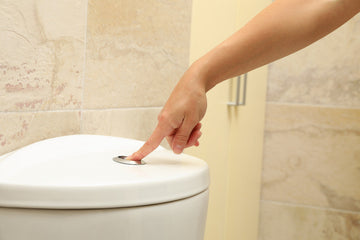In recent years, the global focus on environmental conservation has intensified, and industries across the board are seeking ways to contribute to a more sustainable future. One area that has seen significant advancements is plumbing. By integrating innovations in sustainable plumbing, the industry is revolutionizing the way we use water, aiming to minimize waste and maximize efficiency.
For Industry QA professionals, staying abreast of these trends is crucial. The shift towards eco-friendly plumbing is not just a trend but a necessity. As regulatory standards become stricter and consumer awareness grows, the demand for sustainable solutions in plumbing is expected to rise. Let's delve into some of the most noteworthy innovations in this field.

Green Plumbing Technologies
At the heart of sustainable plumbing are green technologies designed to reduce water consumption and enhance efficiency. These systems are engineered to minimize the environmental impact of plumbing activities. One such innovation is the dual flush toilet system, which allows users to select a low water flush for liquid waste and a higher volume flush for solid waste. This simple yet effective design can significantly reduce household water usage.
Moreover, the adoption of low-flow fixtures is becoming more common. These fixtures, including faucets, showerheads, and toilets, are designed to perform efficiently while using less water. The Environmental Protection Agency's WaterSense program certifies products that meet specific criteria for water efficiency. For more on the benefits of low-flow toilets, check out this detailed guide.
Smart Plumbing Solutions
The advent of smart technology has also made its way into the plumbing industry. Smart plumbing devices, such as leak detectors and automated irrigation systems, are designed to provide real-time data on water usage. These devices help identify leaks early, preventing water waste and potential damage.
Smart plumbing systems can be integrated with home automation systems, allowing users to control water usage remotely. This integration enhances convenience and promotes responsible water management. For instance, smart irrigation systems adjust watering schedules based on weather forecasts and soil moisture levels, ensuring optimal watering and reducing unnecessary water use.
Recycled Water Systems
Another exciting development in sustainable plumbing is the use of recycled water systems. These systems treat greywater from sinks, showers, and washing machines, making it suitable for non-potable uses such as irrigation and toilet flushing. Implementing greywater systems in residential and commercial properties can drastically reduce fresh water consumption.
In regions prone to droughts, recycled water systems are particularly valuable. They help maintain landscapes and gardens even during water restrictions. For those interested in home improvement projects aimed at water efficiency, explore some insightful tips on home water efficiency.
Future Trends in Plumbing
As the world continues to innovate, the plumbing industry is poised to evolve further. Emerging technologies, such as waterless urinals and solar-powered water heaters, hold promise for greater sustainability. These innovations are not only environmentally friendly but also cost-effective in the long run.
Additionally, the integration of renewable energy sources in plumbing systems is gaining traction. Solar water heaters, for example, use solar panels to heat water, reducing reliance on traditional energy sources. This shift aligns with global efforts to reduce carbon footprints and promote sustainable living.
For a comprehensive understanding of the role of plumbing in water conservation, visit this resource.

FAQs
What is the significance of sustainable plumbing?
Sustainable plumbing is crucial for conserving water, reducing energy consumption, and minimizing environmental impact. It ensures efficient water usage and promotes eco-friendly practices in households and industries.
How do dual flush toilets contribute to sustainability?
Dual flush toilets allow users to choose between a low and high volume flush, effectively reducing water usage by adjusting the water volume according to the waste type. This design innovation helps conserve significant amounts of water.
What role does smart technology play in plumbing?
Smart technology in plumbing provides real-time data on water usage, detects leaks early, and integrates with home automation systems to enhance water management. These innovations promote efficient and responsible water use.






